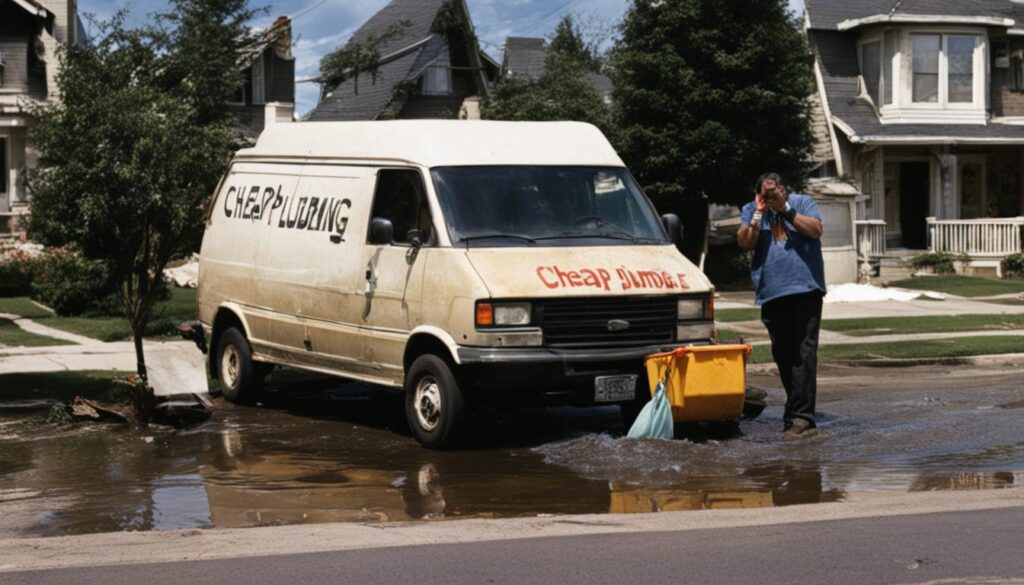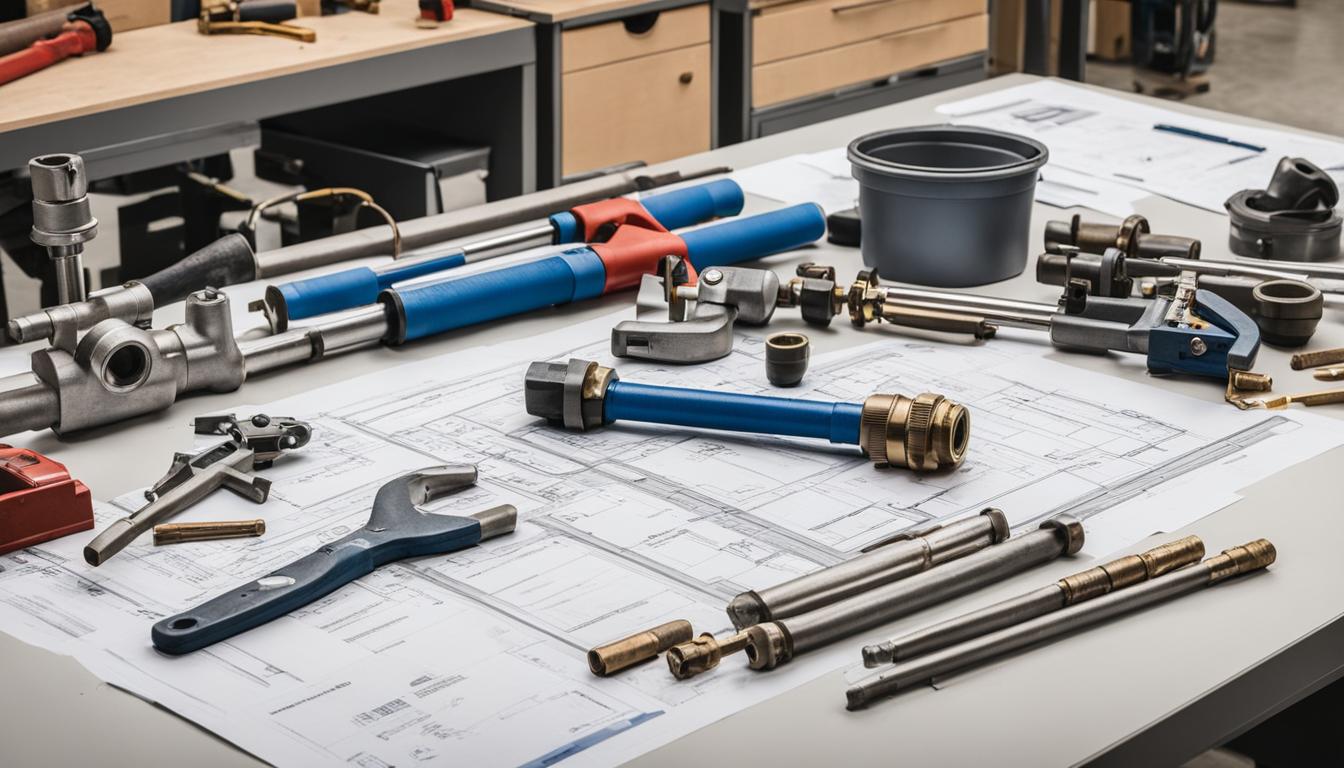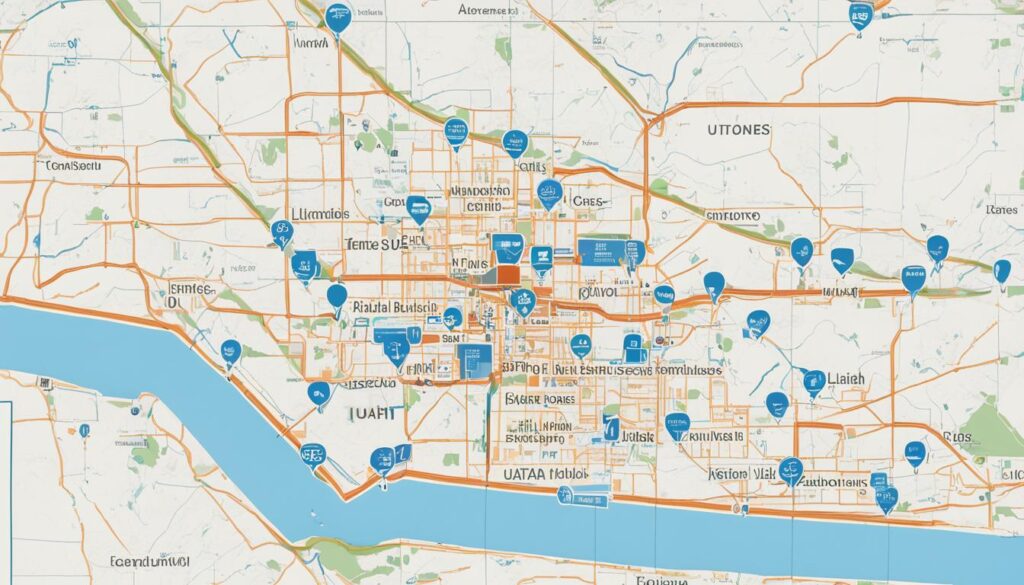Embarking on the journey of starting a plumbing business brings with it a cascade of questions, particularly about the legalities involved. You may find yourself asking: is it feasible to navigate the complexities of the plumbing industry regulations without a formal license? The answer isn’t straightforward, as varying state-specific requirements come into play. For instance, while you may operate under a licensed contractor in some states, others mandate that owning a company means having at least one licensed plumber on staff.
Understanding these nuances is vital as you consider operating a plumbing business without a license. Naturally, your goal is to establish a reputable and compliant business, but are you aware of the potential limitations and the importance of adhering closely to local laws? Let’s delve into these important considerations to ensure that your entrance into the plumbing sector is both informed and strategic.
The decision to start a plumbing business comes with the responsibility of understanding and complying with industry guidelines. Your success hinges not only on your plumbing skills but also on your ability to operate within the legal framework set forth by state regulations.
Key Takeaways:
- Researching local laws is crucial for starting a plumbing business legally.
- A thorough understanding of plumbing industry regulations helps in charting a compliant business path.
- The possibilities and constraints of operating a plumbing business without a license vary by state.
- Working under a licensed contractor may be a permissible alternative in some circumstances.
- Some states require your business to employ licensed plumbing staff, stressing the importance of licensure for credibility and legal operations.
The Legal Landscape: Understanding State Regulations
If you’re considering launching your own plumbing business, it’s crucial to navigate the complex network of state-imposed legalities that govern the industry. Compliance with these regulations not only legitimizes your venture but also offers a shield against potential legal ramifications.
State-by-State Variance in Licensing Requirements
The requirements for starting a plumbing business are far from uniform across the United States, with each state holding the power to enforce its unique blend of rules. Before you delve into providing services, it’s imperative to familiarize yourself with the license requirements for plumbing businesses within your region. This may range from mandatory certifications to several years of hands-on experience in the trade.
What the Law Says: Operating a Plumbing Business
Legal requirements for plumbing businesses are not just recommendations; they are enshrined in law and must be adhered to diligently. For example, the California State Licensing Board stipulates that any plumbing contract exceeding $500 must be undertaken by a holder of a C-36 Plumbing Contractor license, ensuring that every professional in the field meets a predefined standard of expertise and quality.
The Consequences of Skirting Licensure
The temptation to bypass the licensing process can be high, but it’s a siren call that leads to a potential minefield of legal troubles. Operating your plumbing business without the required credentials could set you back significantly through hefty fines, a tarnished reputation, and more obstacles that could undermine your business’s viability in the competitive plumbing market.
Exploring the Ramifications of Unlicensed Operation
When you’re considering starting a business in the plumbing industry, it’s crucial to understand that skimping on the proper licensure isn’t just a shortcut—it’s a significant risk. Navigating the waters of regulations for plumbing businesses without a license is akin to setting sail without a compass. The implications are vast, and the waters, undoubtedly, are treacherous.
Firstly, the legal repercussions are no light matter. Should you choose to operate your plumbing business without the necessary credentials, you may be issued substantial fines and penalties that can throttle your business’s financial health. In some jurisdictions, the continuous disregard for licensing regulations could even result in criminal charges, imperiling not just your business but your personal liberty as well.
Moreover, without a license, the very foundations of your business are unstable. Here are a few fundamental aspects of your business that could be adversely affected:
- Public Projects and Bidding: Without a license, you’ll often find doors to lucrative public contracts firmly shut. The opportunity to grow your business by undertaking these projects will be lost.
- Building Permits: Securing building permits is a routine requirement for many plumbing jobs. Unlicensed? You might find this routine to become a roadblock.
- Advertising: In the digital age, advertising is more critical than ever. An unlicensed operation could find itself severely restricted in promoting its services.
Let’s not forget the pragmatic side of things—insuring your business. Insurance companies favor the reassurance a license provides and may deny coverage if you cannot provide proof of licensure. Without insurance, a single accident or injury could be financially disastrous, not to mention the hit your credibility will take when clients find out you are uninsured.
Indeed, the decision to bypass licensure not only places your business at financial risk but also tarnishes the trust between you and your potential customers. It’s a blemish on your brand’s reputation that could hinder relationships before they’ve even begun. So, before casting off into the vast sea of the plumbing industry, make securing your license a cornerstone of your voyage to business success.
Can You Start a Plumbing Business Without a License?
Embarking on the journey of starting a plumbing business without a license can seem like uncharted waters. Yet many entrepreneurs dare to explore this path, looking to tap into the lucrative plumbing industry. If you’re contemplating beginning an unlicensed plumbing business operation, it’s vital to become acquainted with the initial steps you should take, as well as understand the hurdles you might confront along the way.
Initial Steps for Unlicensed Entrepreneurs
Breaking ground as an unlicensed entrepreneur in the plumbing sector means you’ll have to chart your course carefully. The first milestone involves acquiring hands-on experience. Working under the wing of a licensed contractor offers you the practical knowledge that you can’t glean from books or classes alone. This is also a chance to comprehend the range of tasks you’re legally allowed to perform without a license, and identify the niche that best suits your skillset.
Limitations and Challenges Faced by Unlicensed Businesses
However, an unlicensed plumbing business operation encounters its fair share of obstacles. State regulations can significantly restrict the scale of jobs you can accept. For example, without a license, managing comprehensive plumbing projects or engaging in official contracts could be off-limits, stifling your business’s growth potential. Moreover, you could be ineligible for certain insurance policies, leaving your enterprise exposed to risks.

Why a License Could Be Your Best Investment
The pursuit of a plumbing license is not merely a formality but a solid investment in your future. With a license in hand, your earning potential accelerates, and your eligibility for more extensive and lucrative projects expands significantly. In states like California, where licensed plumbers can command an impressive income, the financial incentives alone make obtaining a license an attractive proposition. Beyond the immediate financial benefits, a license also instills trust among customers, enhancing your reputation and setting the foundation for a thriving enterprise.
- Obtain practical experience under licensed supervision
- Understanding of permissible work scope
- Navigate legal constraints skillfully
- Invest in licensure for financial and professional growth
Navigating the Industry: Required Skills and Knowledge
Embarking on the journey of starting a plumbing business demands more than just a shrewd entrepreneurial spirit; it calls for in-depth, hands-on expertise in the plumbing field. The cornerstone of your venture lies in acquiring the vital skills and comprehensive knowledge that validate your professionalism to your prospective clientele.
You’ll understand that plumbing training is not merely about mastering the intricacies of pipes and fixtures; it’s an expansive educational quest. It encompasses understanding local codes, grasping the nuances of blueprint reading, and staying abreast of the latest technological advancements in the industry. This broad spectrum of expertise ensures you don’t just meet, but exceed customer expectations.
While California emphasizes a minimum of four years of journeymen-level experience or a balanced combination of vocational training and experience to obtain a contractor license, this requirement reflects a nationwide respect for seasoned proficiency in the plumbing sector. Let’s unravel what it takes to stand out among the competition:
- Robust understanding of plumbing systems and fixtures
- Comprehensive knowledge of building codes and regulations
- Proficiency in modern plumbing tools and technology
- Proven experience in troubleshooting and customer service
- Development of efficient and effective business operations
As you advance through your career, continuous learning and adaptability become your allies. In a field where energy-efficient solutions and eco-friendly practices are gaining momentum, staying informed of these trends will prove invaluable.
Fostering such an all-encompassing skill set not only positions you for success when starting a plumbing business, but it also instills trust from your clients. They will recognize the craftsmanship in your diagnostic acumen and your methodical approach to resolving their plumbing woes.
Embarking on this path with the right tools—in terms of knowledge and training—lays the groundwork for a prosperous enterprise. Your commitment to excellence in plumbing services will be the beacon that attracts customers and establishes your reputation as a trusted expert in the field.
Drafting a Plan: Business Structures and Strategies
Embarking on your journey to establish a successful plumbing enterprise begins with laying a robust foundation. This means carefully considering the type of business struct you choose and meticulously planning financial strategies to ensure your business thrives from the start. But before you dive into the details of creating your plumbing business plan, let’s look at the core elements that will make up your blueprint for success.
Choosing the Right Business Structure
When it comes to picking a business structure, you’re not just choosing a legal entity; you’re setting the course for how your business will operate and be perceived. Your decision impacts everything from liability to taxes and must align with your long-term vision. Will you start as a simple sole proprietorship, or do you see your venture expanding rapidly, making a corporation or LLC more suitable?
- Sole Proprietorship – a straightforward and cost-effective option with full control but personal liability
- Partnership – for those who plan to share ownership and responsibilities
- Limited Liability Company (LLC) – offering flexibility and protection from personal liability
- Corporation – ideal for larger operations with potential investors, providing the most protection and structure
Building a Solid Business Plan: The Essentials
A comprehensive plumbing business plan is not just a formal document; it’s a navigation system for your business that covers all angles, from market analysis to competitive strategies. It crystallizes your vision and breaks down the actionable steps needed to turn that vision into reality.
- Executive Summary – Your business at a glance, including vision, mission, and what sets you apart
- Business Description – An overview of your services, and the problems you aim to solve
- Market Analysis – Insight into your target customers and competitive landscape
- Organization and Management – Your team structure, and the roles each person plays
- Services Offered – A detailed look at your plumbing services and customer benefits
- Marketing Plan – How you will attract and retain customers
- Financial Projections – Your fiscal plan covering initial funding, expected revenues, and long-term financial forecasts
Budgeting Wisely: Startup Costs and Financial Planning
Sound financial planning for your plumbing business means knowing the numbers inside out. This encompasses initial startup costs such as tools, vehicles, and insurance, and extends to ongoing expenses like salaries, marketing, and office space. More than just monitoring expenditures, this plan helps you price your services competitively and ensures you have sufficient capital to support your business until it becomes profitable.
- Startup Expenses – List the one-time expenses for getting your business off the ground
- Operational Costs – Monthly and yearly expenses that keep your business running
- Revenue Projections – Realistic estimates of your income based on market analysis and service pricing
- Break-Even Analysis – Determine when your business will start making a profit
- Financial Growth Projections – Outlining your financial ambitions and the benchmarks to achieve them
Starting your plumbing enterprise on the right foot means taking a strategic approach to business structures and financial groundwork. By addressing these components with due diligence, you’re not just starting a plumbing business, you’re cultivating a viable, growing enterprise that’s poised for lasting success.
Insurance and Bonding: Protecting Your Business and Clients

As you delve into the realm of plumbing services, understanding the insurance requirements for your plumbing business is not just prudent; it’s essential. Insurance acts as a safety net for both you and your clients, covering unforeseen incidents like workplace accidents or property damage. This isn’t just about mitigating risks—it’s about establishing trust. Clients are more likely to hire services that demonstrate responsibility and foresight through comprehensive insurance coverage.
Moreover, bonding for plumbing companies is equally critical for safeguarding the financial interests of your customers. A bond is assurance to your clients that you stand behind your work. If unforeseen circumstances prevent you from completing a job, clients can be reimbursed. This layer of protection can be a deciding factor for customers when choosing between plumbing service providers.
- General Liability Insurance
- Workers’ Compensation
- Property Insurance
- Surety Bonds
Balancing the costs of insurance and bonding might seem challenging; however, consider these not as expenses but as investments into the stability and credibility of your plumbing business. They signal to clients that you are committed to quality service and have taken steps to ensure their interests are protected. By meeting insurance and bonding requirements, you’re not just complying with industry standards—you’re building a foundation of trust that is crucial for long-term success.
Marketing Your Plumbing Business: Attracting Customers Without a License
Navigating the complexities of the plumbing industry without a license can be challenging, yet with robust marketing and branding strategies for plumbing services, your business can thrive. Understanding how to effectively position your services in a competitive market is crucial, especially when you’re overcoming the hurdle of not having a license. In this segment, we’ll delve into how to leverage your unique strengths and create a compelling brand that resonates with your clientele.
Branding and Reputation Building Strategies
To set your unlicensed plumbing business apart, establish a strong brand that speaks to the quality and reliability of your services. A memorable logo, a consistent color scheme, and a professional website can lay the foundation for your business’s visual appeal. Remember, customers often equate a well-crafted brand image with trustworthiness and expertise. Initiate community outreach programs and sponsor local events to build your reputation and gain positive word-of-mouth. Always emphasize your commitment to quality workmanship despite the lack of licensure—highlighting testimonials and case studies of satisfied customers can significantly aid in this endeavor.
Leveraging Digital Marketing and Social Media
In this digital age, your presence online is as important as the services you offer. Optimize your website for search engines with keywords like “marketing a plumbing business without a license,” ensuring that potential customers find you when they need you the most. Engage with your audience on social media platforms by sharing tips, promoting special offers, and demonstrating your expertise through how-to videos or informative posts. These platforms are an excellent way to show the human side of your business and engage with customers in real-time.
Developing a Referral Network and Partnerships
Building relationships with other non-competing service providers can yield a fertile ground for referrals. Establishing partnerships with local hardware stores, home improvement services, or contractors can open doors to a new customer base. Encourage word-of-mouth marketing by creating a referral program that rewards both the referrer and the new customer. Remember, a strong network and solid partnerships can be the lifeline for your business growth.
Investing in Tools and Equipment: What You Need to Succeed
As you embark on the journey of building your plumbing business, the significance of having the right plumbing tools and equipment cannot be overstated. Whether you’re laying down pipes or troubleshooting a leak, your prowess is only as good as the tools at your disposal. Strategically investing in a robust toolkit is not just a necessity—it’s a long-term investment in the efficiency and quality of service that you offer your clients.
Understanding that resources for a plumbing business startup can be tight, there are innovative ways to equip your business without compromising on quality. Here’s a practical guide to help you navigate the procurement of your essential tools:
- Inventory Must-Haves: Start with a list of essential items such as wrenches, cutters, and sealants. Prioritize tools that will be used most frequently and have the versatility for various jobs.
- Quality Over Quantity: It’s better to invest in a few reliable, high-quality tools than a multitude of sub-par equipment that will need frequent replacing.
- Going Secondhand: Consider buying used plumbing tools and equipment. Many plumbers upgrade their tools and sell older models that still have plenty of life left.
- Payment Plans and Financing: Some suppliers offer payment plans that allow you to spread out the cost over time, making the initial investment more manageable.
- Rent vs. Buy: For specialized tools that you may not use regularly, renting can be a cost-effective option.
Remember, being resourceful with your purchases can leave you better financial headroom for other aspects of your business. It’s about using your resources intelligently to create a foundation that ensures productivity and growth. With the right plumbing tools and equipment, you’re not just purchasing hardware; you’re building a reputable, capable plumbing service that’s ready for any challenge.
While keeping your budget in check, never compromise safety or quality—these are the cornerstones that will secure the loyalty of your customer base. Armed with the best tools, your plumbing business has what it takes to succeed and flourish in a competitive market.
Conclusion
In navigating the complexities of the plumbing industry, it has become evident that starting your own plumbing business without a license is a path filled with obstructive legalities and risks that could potentially dampen your entrepreneurial spirit. While the temptation to leap into the pool of unlicensed operation might exist, especially with the allure of immediate opportunities, the undertow of legal consequences could swiftly undermine your efforts. The framework of regulations that govern this sector is not just a bureaucratic tapestry but a safeguard for both your clients and your long-term business viability.
Summarizing the Feasibility and Risks
The American dream of business ownership remains compelling within the plumbing sector, and yet the journey toward establishing a successful plumbing enterprise demands careful consideration of both state regulations and industry standards. The variability of laws across different states dictates that you stay informed and compliant to avoid the detrimental setbacks of fines, decreased credibility, and limited business opportunities. The path you forge in the plumbing business growth is paved with the bricks of knowledge, experience, and lawful operation.
Moving Forward: Paths to Plumbing Licensure and Business Growth
As you contemplate the expansion of your plumbing services, consider the paths to plumbing licensure as an investment in your professional future. Achieving licensure is not merely an end goal but a means to wider avenues for growth, respectability, and higher income. Embrace the legal parameters as stepping stones rather than stumbling blocks. Once licensed, your business is primed to scale new heights, secure more lucrative contracts, and build enduring trust in a competitive marketplace. Remember, the most sustainable and rewarding way to ascend in the plumbing industry is to align with its legal guidelines, elevating your trade from a mere vocation to a distinguished profession.
FAQ
Can You Start a Plumbing Business Without a License?
The ability to start a plumbing business without a license depends on the state you plan to operate in. Some states allow individuals to work under a licensed contractor without a license, while for others, a license is mandatory for operating a plumbing business above a certain contract value. It’s essential to check with your state’s regulations to know the exact legal requirements.
How Do State Regulations Affect Starting a Plumbing Business?
State regulations vary considerably, meaning that what’s permissible in one state may not be in another. For instance, California requires a C-36 Plumbing Contractor license for projects over 0, whereas in other states you may only need to work under the supervision of a licensed plumber. It’s crucial to understand the licensing requirements in the state where you wish to start your business.
What Are the Consequences of Operating a Plumbing Business Without a License?
Operating a plumbing business without fulfilling the legal license requirements can lead to severe consequences. Penalties may include fines, restrictions on advertising services, an inability to bid on public projects or secure necessary permits, and difficulty in gaining commercial insurance. Such constraints make operating and growing a business extremely challenging.
What Are the Initial Steps for Unlicensed Entrepreneurs in the Plumbing Industry?
As an unlicensed entrepreneur, your initial steps should include working under a licensed contractor to gain experience, understanding the services you are legally allowed to provide, and learning the business aspects of plumbing. Taking the time to gain this experience can provide valuable insights and prepare you for eventually obtaining your own license.
What Limitations Do Unlicensed Plumbing Businesses Face?
Unlicensed plumbing businesses may face limitations such as the size and type of projects they can take on, restrictions on advertising, as well as challenges in securing insurance and bonding. These limitations can hinder growth potential and revenue opportunities, ultimately affecting the success of the business.
Why Might Investing in a Plumbing License Be Beneficial?
Investing in a plumbing license opens up a wealth of opportunities, from the ability to work on larger, more profitable projects to establishing credibility with clients. Licensed plumbers often have higher earning potential, with averages around ,000 annually in California, for example. Licensure also reduces the risk of legal issues and can lead to a more sustainable business in the long term.
What Knowledge and Skills Are Required to Navigate the Plumbing Industry Successfully?
Thriving in the plumbing industry requires a deep understanding of the trade, proficiency in various plumbing techniques, problem-solving skills, and adherence to safety standards. In some states, several years of experience or a combination of vocational training and experience are necessary to qualify for a plumbing license.
How Should You Choose the Right Business Structure for Your Plumbing Business?
Choosing the right business structure involves assessing factors like the level of personal liability you’re willing to accept, tax implications, and business goals. Common options include sole proprietorships, partnerships, LLCs, and corporations. Each has distinct advantages and legal requirements, and it’s often recommended to consult with a business attorney to make the best choice for your circumstances.
What Are the Essentials for Building a Solid Business Plan in the Plumbing Industry?
A solid business plan for a plumbing business should include a clear description of your services, analysis of your target market, marketing and sales strategies, financial projections, and a detailed plan for growth. It should provide a strategic framework for making informed decisions and evaluating business performance.
Why Is Insurance and Bonding Important for a Plumbing Business?
Insurance and bonding are critical components of a plumbing business as they protect both your business and clients. Insurance can cover property damage, accidents, and other liabilities, while bonding provides a guarantee to clients that the job will be completed as promised. Having adequate insurance and bonding enhances your credibility and provides peace of mind to your customers.
How Can You Market a Plumbing Business Without a License?
Marketing a plumbing business without a license still involves creating a strong brand, leveraging online marketing tools, developing a solid web presence, and utilizing social media to showcase your expertise. Additionally, building a referral network and establishing partnerships within the industry can compensate for the lack of licensure by boosting your reputation through word-of-mouth and collaborative relationships.
What Tools and Equipment Are Needed to Succeed in Starting a Plumbing Business?
The right tools and equipment are vital for any plumbing business. Basic tools for plumbing include wrenches, cutters, and plungers, while advanced technology like inspection cameras might be necessary for specialized services. While the initial costs can be significant, options such as purchasing used equipment or financing can help manage expenses and ensure your business is well-equipped to provide quality services.




